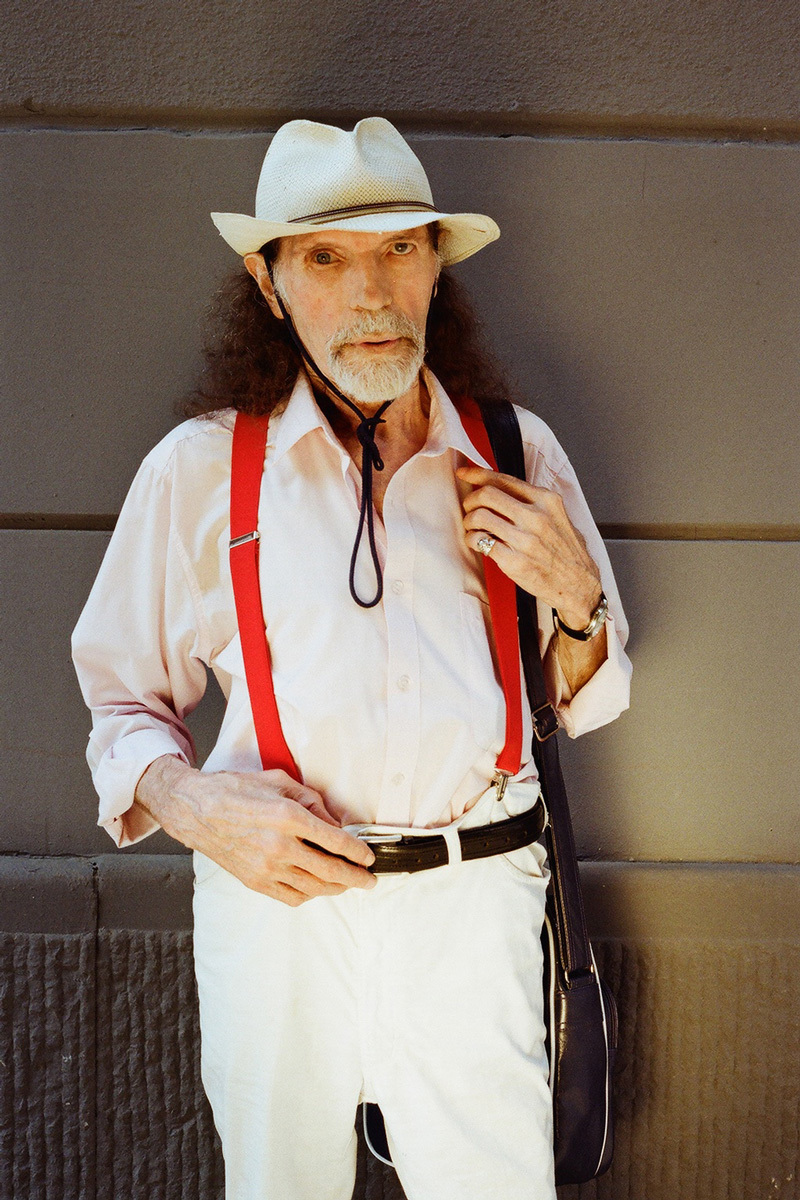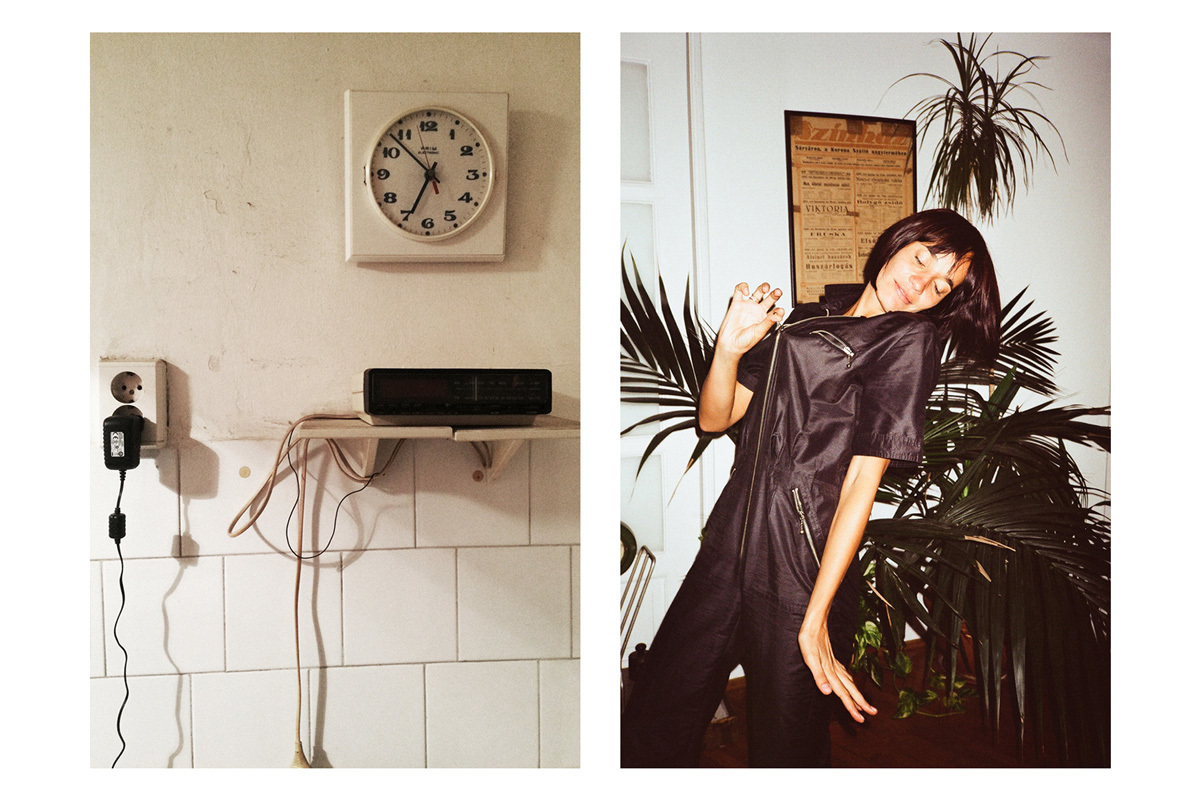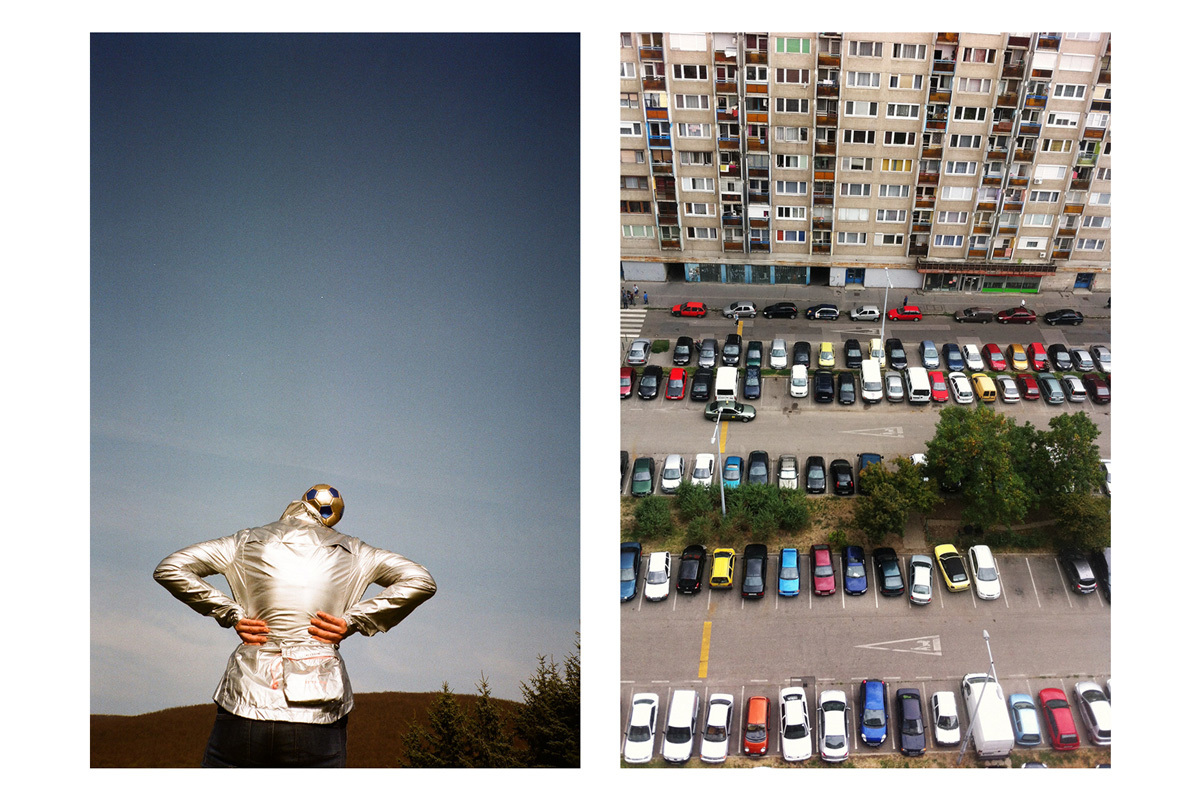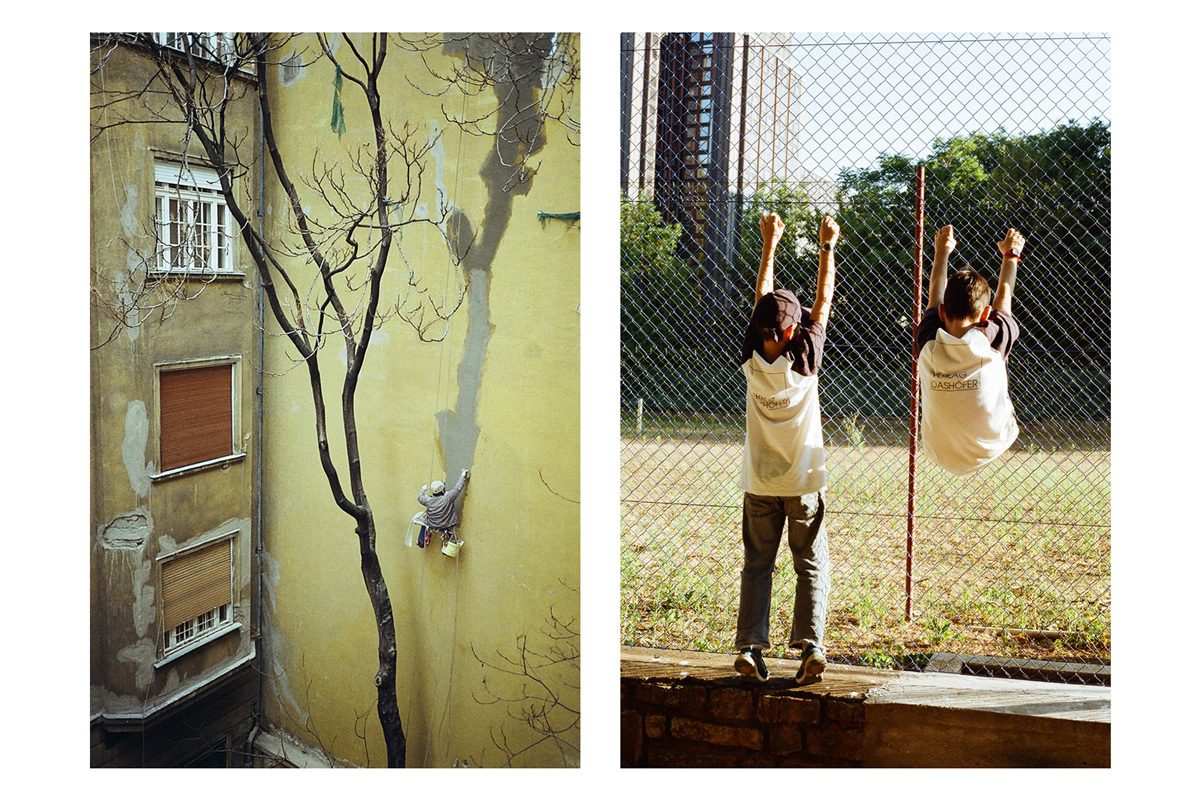Despite being born in Budapest, Andi Galdi Vinko is starting to feel more and more like a tourist in her hometown. Whenever she returns to Hungary, she is filled with a sense of nostalgia, which is something wanted to convey in her latest photographic series Homesickland. “I want to show something about Budapest you don’t see when you come here for a weekend, when you hang out in the baths or go to the parties,” she muses. “But I also wanted to show something you don’t see when you live here. Because we never pay attention to what surrounds us. We walk past things as if they’ve been there forever.”
No longer a local, but not quite a tourist, Andi occupies that middle-ground between the familiar and the new. Growing up in Hungary in the 80s, witnessing the fall of the communist government, she remembers how excited her parents were at the possibility of freedom. During her teenage years she spent time studying in both Paris and Rome, before returning to Budapest to attend university. It was upon her return that she realised how different her hometown had become. The hope of its post-communist dream had faded, and she felt that in terms of culture it was far behind that of Paris or Rome – there were no magazines, no real galleries, no sense of youthful innovation or creativity. In 2011 she left Budapest again, in pursuit of a new and exciting art scene, a quest that took her around the world, from London to Paris to New York. Having returned home once more, Andi greets Budapest as you would an old friend, a feeling that permeates through her photos. A work in progress, we caught up with the photographer to talk about the complicated emotions the project deals with.

What was Hungary like when you were growing up?
I was born in Budapest in the 80s. I remember the fall of communism. The excitement of my parents and their friends about freedom and future. My mother’s enthusiasm in taking us abroad for the first time. We felt that it was something very important, something meaningful.
Why did you leave?
When I graduated from art school in 2011 I started looking abroad again. There is this weird duality in me about Hungary. I don’t want to live here but I can’t leave it. At the same time as Budapest was becoming this cool hipster destination for stag dos and young tourists, I could only see how superficial everything was and how poor its cultural possibilities were, and I started getting angry at it for slowing me down. It wasn’t western enough to be part of the emerging art scene that I was looking at but it didn’t have that eastern charm anymore. I was surrounded by my friends from art school, we were ambitious, but we had no platforms. Apart from a few curators, no-one was really into anything that mattered around the world. Nothing really made any difference and nothing had a real impact on anything.

Where do you call home now?
In the past four years I have lived a little bit of everywhere, between New York, London and Paris. I’ve discovered and learnt about new art scenes, discovered new interests, I’ve worked for really good magazines and exhibited in great shows. I’ve made new friends who think like me and understand what living without having a home is like, where you question your dreams everyday, where you know how lucky you are but you also constantly feel like you are not doing enough.
What feelings does returning to Hungary conjure up?
I have mixed feelings. I don’t work here anymore. I don’t have expectations. I started looking at it differently, with a sad acceptance, filled with memories, filled with love, and with a curiosity to understand what creates this duality of not being able to leave it but not wanting to ever come back.
Over the past few years so many of my friends left and moved to other cities, especially from the art scene, but everyone keeps coming back just to leave again. I think we are a generation with no real home, but a lot of memories from different places. I was born in a period where borders mattered, then I learnt that you could do anything and the only limits that exist are the ones you set yourself. Now we are creating borders again. Limiting some and restricting others.

What did you want to convey with these pictures of Budapest?
Recently I’ve been acting like a tourist in Hungary. I saw a weird beauty in its nostalgic ambience. I want to show something about this place you don’t see when you come here for a weekend, when you hang out in the baths or go to parties. But I also wanted to capture something you also don’t see when you live here, because we never pay attention to what surrounds us. We walk past things as if they’ve been there forever, and I want to freeze these moments for eternity. There is something about tradition, about family in Hungary that is so typically eastern, some kind of respect to your ancestors, to the weight of history and a sadness carried through generations. I think Hungarians tend to be very negative but in a weird cynical way.
What is it about the medium of photography that appeals most?
Photography was always part of my life from early childhood I just never thought of it as a career. It took me a while to realise that it’s not just a hobby. Photography is a medium to create a world, a universe I like to live in. It allows me to turn the camera away from my own problems – so it almost looks like I am just observing, studying life. As a kid I was really afraid of bugs and moths and the only way I could catch them or get close to them was by pretending to take a photo of them.
What else are you working on?
I’ve been finishing up my series Paradisco which will be published soon. It’s my first book, and its taking longer than I thought.

Credits
Text Tish Weinstock
